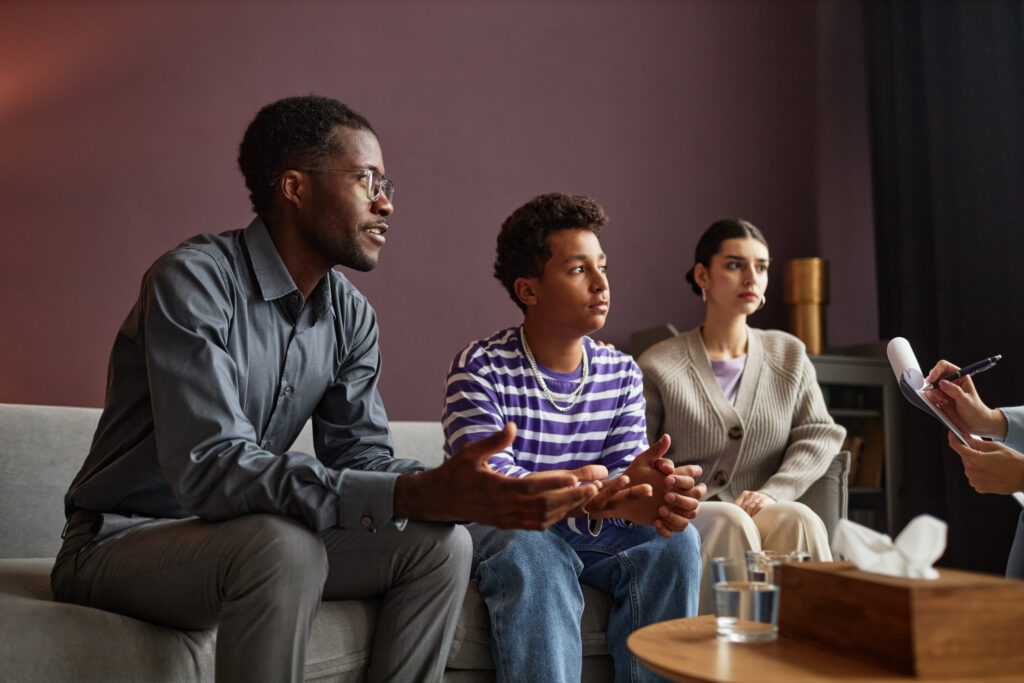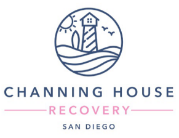in network with







Family Therapy
Substance abuse has a high correlation with family dysfunction. People who embark on the journey of recovery often face a wide range of feelings like resentment, hostility, apathy, and guilt from their loved ones. The people in your life may not understand your condition. They may view your experiences with stigma or judgment or feel responsible for not doing more to help.
This problem stems in part from widespread misinformation due to a lack of education on rehabilitation and mental health. Family therapy in San Diego is one way to combat this disconnect and encourage family members to learn more about the effects of substance abuse and recovery in a safe, judgment-free space.
What is family therapy?

The purpose of family therapy is to create a supportive and balanced family environment. Family therapy comes in several different formats. Its most common iteration entails several family members taking part in talk therapy together. A therapist will lead discussions on various stressful aspects of the individual relationships and the family dynamic as a whole.
This process works to help each person reach an understanding and find ways of improving the family bond through behavioral changes. Each family has unique issues, and tailored therapy will address the most relevant ones. Sometimes family therapy requires only a handful of sessions, while others run deeper and can take longer.
Is family therapy only for relatives?
The term “family therapy” can sound misleading; in truth, people in many types of relationships find it useful. There is no requirement for you to be related by blood or marriage to engage in family therapy. Children, parents, extended family members, spouses, and romantic or non-romantic partners alike can benefit from its practice.
What is the goal of family therapy?
By practicing family therapy, you’ll work towards selecting the main goals. You will learn to effectively communicate, improve problem-solving skills, understand the perspectives of others and become educated on mental health, addiction, and recovery. All parties are meant to leave therapy with a deeper understanding of one other and increased empathy. You can use these improvements as a starting point to rebuild a damaged or neglected relationship.
According to a 2020 article by the National Institute of Mental Health & Neuro Sciences in India, participating in family therapy can:
- Eliminate family-related barriers that may affect treatment
- Provide family support that can improve engagement in therapy
- Reduce aspects of the family environment that may contribute to a relapse
What to expect
Family therapy in San Diego with Channing House Recovery is generally short-term. Each session goes over a specific aspect of your relationship. You and your loved ones will learn the skills needed to bridge gaps that may have grown between you. Family therapy is not a magic cure-all; even after the sessions are over, there will still be work to be done. The fruits of your sessions simply make it easier to get started on that work.
How a session plays out will depend on multiple factors, including how many people are attending, the source of the issue, what everyone feels comfortable with, and whether you are doing therapy remotely or in person. There are a few basic steps you can expect to take, including:
- Looking at family roles, rules, expectations, and behaviors from an outside perspective to see how they impact your relationships
- Learning to effectively communicate your needs and boundaries
- Discussing your collective ability to productively solve problems and resolve emotional issues
- Acknowledging the consequences of actions taken while under the influence of an addictive substance in a healthy and positive way
APPROACHING YOUR FAMILY ABOUT THERAPY
Not everyone is going to be open to family therapy. Timing is essential, as is the way you approach them about the idea. You may have to educate them about what treatment entails. There are numerous stigmas associated with therapy and mental health in general. If your loved one is from an older generation, they may have an outdated and inaccurate understanding of what ‘therapy’ means. Here are a few tips for successfully bringing up the subject of family therapy:
- Stay calm and empathetic no matter how negatively they respond to the suggestion. Your loved one’s reaction may come from a place of fear or ignorance.
- Have educational resources on hand that you can share with them, such as links, brochures, or books.
- Do not pressure them into going to therapy with you. Adding pressure or guilt could cause resentment and make any relationship issues worse. Instead, be patient and understanding.
- Try to see the request from their point of view.
Communicate honestly and clearly. Explain why you feel that family therapy could be good for you both. - If you know that your loved one has a specific reservation, do some research so you can dispel inaccurate beliefs about recovery and therapy.
- Give them time to get used to the idea instead of creating an ultimatum.
Verify your insurance today
Marriage & Couples therapy
Relationships can often be affected by drug abuse’s actions and side effects. Admitting you and your partner need help during these times is a big step and can feel overwhelming. Couple and marriage counseling in San Diego provides a safe, guided space where significant others can explore conflicts and solve interpersonal issues. Several psychotherapy techniques may be used, including behavioral couples therapy (BCT).
A 2004 article made available by the National Institute on Drug Abuse reported that “in multiple studies with diverse populations, patients who engage in BCT have consistently reported greater reductions in substance use than have patients who receive only individual counseling.” They also found that couples undergoing BCT had improved relationship satisfaction and family function.
When you work with Channing House Recovery & Detox team, you’ll receive a caring and compassionate team that are experts in couples counseling in San Diego, Ca. We can help you develop a stronger, deeper, more meaningful relationship with your significant other if you contact us today to learn more about marriage therapy in San Diego.
Signs you may need Marriage or couples therapy

Not everyone needs relationship counseling during rehabilitation or recovery. There might be superficial issues that you and your partner can work through fine on your own.
However, there are situations that couples face that might need emotionally focused therapy. If you notice some of the following signs, it might be time to speak to a certified marriage or couple therapist:
- A lack of communication or consistent miscommunication
- A significant life transition
- Frequent arguments and persistent negativity within the relationship
- If you harbor feelings of fear, guilt, or doubt about your relationship or your partner
- When manipulation is present in any form, including withholding affection as a way to control
- You or your partner do not seem to be on the same page about major life decisions
- You feel like your partner does not understand the concept of continuing recovery
- Either of you has an affair or are fantasizing about having an affair
- Frequent unfulfilling or apathetic sexual interactions
- When either you or your partner feel like there is something seriously “off” with your relationship and talking has not helped
How substance abuse can affect your partner
The National Institute on Alcohol Abuse and Alcoholism (NIAAA) states that alcohol and other substance use disorders (SUD) can have a severe adverse effect on relationships and increases the risk of developing any or all of the following within a partnership:
- Violence
- Marital or partner conflict
- Infidelity
- Jealousy
- Economic insecurity
- Divorce
Drug and alcohol use can cause mood swings, temperament changes, and a lack of emotional control leading to people doing and saying things they might not have without being under the influence. Some of the negative behaviors stemming from substance use that can cause problems in a relationship include those listed here:
- Negativity in the form of frequent criticism, complaints, and judgemental reactions towards your partner disproportionate to the situation
- An inconsistent approach to accepting your partner’s personal and relationship boundaries
- Denial that there is a problem with your behavior or relationship and avoiding accountability for your actions
- Inability to appropriately express anger, outrage, or frustration leading to violent or emotionally damaging outbursts
- Setting unrealistic expectations on your partner or relationship and then getting angry or disappointed at them when they do not measure up
What to expect
You and your partner will work with a couples therapist in San Diego to uncover and resolve relationship issues. Depending on the situation, it might be beneficial for each person to have one-on-one therapy in addition to the joint sessions.
A combination of individual therapy and behavior therapy is common in couple counseling. You might encounter several other therapeutic processes, including experiential or structural family therapy, family problem solving, solution-focused, multi-systemic, or narrative therapy.
Marriage and couple therapists will do the following to help their clients grow and heal:
- Encourage you and your loved one to share thoughts, feelings, and experiences.
- Teach you to process your reactions to events and difficult circumstances.
- Provide you with information about additional resources like support groups that can enhance the results of your couple therapy.
- Teach you and your partner life skills, new ways of behaving, and strategies for overcoming disagreements and complex issues.
- Provide an outside perspective to help you figure out the best path forward when making decisions about the future.
CAN THERAPY SAVE A MARRIAGE OR RELATIONSHIP?
Attending therapy without doing the hard work is not enough to repair a relationship that is breaking down. You and your partner will need to put time and energy into making healthy changes in the way you approach the relationship and treat one another. Some couples may find this easier than others.
The Psychotherapy and Counselling Federation of Australia published a 2012 review of the data concerning the effectiveness of family and relationship therapy. They discovered evidence that couple therapy provided a positive outcome for many of the various research studies participants.
However, the effectiveness of therapy decreased when therapists did not use techniques that fit the lifestyle and temperaments of the people involved. You are more likely to find success if you are involved with a therapy that fits your relationship’s needs. You can work with your therapist to determine the priorities to address and how best to move forward.
Verify your insurance today
WE ARE HERE
For you
DON'T WANT TO MAKE THE MOST IMPORTANT CALL OF YOUR LIFE
Family and marriage therapy can be an integral part of the recovery process. The behaviors and actions you take while under the influence of an addictive substance can damage your relationships with loved ones. Exploring those issues in a supported and guided environment makes it easier to find common ground and start healing emotional wounds.
There is also evidence that educating loved ones about the importance of mental health can lower the risk of a relapse. Working together with a therapist can provide an outside perspective capable of bringing clarity and facilitating real change.
The staff at Channing House Recovery can help you and your loved ones to reconnect in a positive and healthy way. We are here to help you succeed in recovery and beyond.

